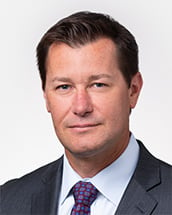In brief
On April 10, 2024, the Department of Justice Antitrust Division (DOJ) announced that it had secured a guilty plea from a fuel truck company owner for conspiracy to monopolize trade in violation of Section 2 of the Sherman Act. This plea agreement marks the DOJ’s second successful criminal prosecution under Section 2 since signaling that it would criminally prosecute Section 2 violations on March 2, 2022. Before last year, the DOJ had not criminally enforced Section 2 for nearly fifty years. This policy shift has expanded the scope of the DOJ’s criminal antitrust enforcement agenda. Accordingly, companies should ensure that their employees are properly complying with antitrust regulations and continue to monitor as this revived area of antitrust law develops.
Key takeaways
- According to the DOJ’s recent guidance on criminal prosecution of Section 2 conduct, unsuccessful attempts, including unilateral solicitations, to coordinate conduct with competitors can give rise to Section 2 violations.
- The plea agreement shows that the DOJ will pursue Section 2 charges for monopolization conduct where defendants make unsuccessful invitations to collude and conspire with others to exclude competitors to maintain pricing power. Indeed, the defendants charged in the DOJ’s three recent Section 2 prosecutions had either unsuccessfully invited competitors to engage in anticompetitive conduct or otherwise used threats of violence to maintain pricing power or dominance in a relevant market.
- Criminal enforcement of Section 2 presents a risk to businesses operating in highly concentrated markets. Companies in these industries should pay especially close attention to this evolving area of law to avoid the risk that dealings with competitors or third parties are perceived as agreements or attempts to maintain monopoly pricing power or exclude the entry of competitors in open bidding processes.
- The DOJ’s recent prosecutions of monopolization conduct underscore its expanded tool kit for criminally prosecuting conduct that may not constitute a per se illegal offense.
In more detail
The DOJ entered a plea agreement under which a fuel truck company owner (“defendant“) agreed to plead guilty to one count each of violating Sections 1 and 2 of the Sherman Act. Section 2 makes it unlawful for any person to “monopolize, or attempt to monopolize, or combine or conspire with any other person or persons, to monopolize any part of the trade or commerce among the several States, or with foreign nations . . . .”1 Here the defendant was charged with conspiracy to monopolize.
In an initial indictment filed in December 2023, the DOJ alleged that the defendant conspired to control the market for fuel truck services used to assist the US Forest Service. The initial indictment also included charges for wire fraud and bid rigging, which is a Section 1 violation.
Ultimately, the defendant pled guilty to a Superseding Information omitting the wire fraud charge and adding the Section 2 charge for conspiracy to monopolize. According to the Superseding Information, the object of the Section 2 conspiracy was to acquire and maintain monopoly power through anticompetitive conduct, including acts that are per se unlawful under the Sherman Act. Specifically, the DOJ alleged that the defendant and his co-conspirators subverted the US Forest Services’ competitive bidding process for its contract awards.
As part of the plea agreement, the defendant admitted to agreeing with competitors to rig bids and allocate territories for fuel truck service contracts with the US Forrest Service, a per se violation of Section 1. Notably, the defendant also admitted to conspiring to monopolize in violation of Section 2 by, among other things, inviting competitors to join an existing bid-rigging agreement with other co-conspirators, offering to purchase the competing supplier’s fuel truck so they “would not compete,” entering unlawfully into a competitors shop and sitting in the competitors’ partner’s truck, and by coordinating with competitors to “de-prioritize” and “squeeze” competing suppliers out of the competitive bidding process. The defendant admitted to doing this as part of a conspiracy “to gain and maintain the power to control prices and exclude competitors in the relevant market”.
In advance of the action against defendant (in October 2023), the DOJ had released a revised Federal Antitrust Primer that included examples of Section 2 criminal violations, specifically:
- Criminal price fixing, bid rigging, or market allocation: when criminals “may conspire to fix prices, rig bids, or allocate a market with the ultimate goal of monopolization”.2
- Other criminal conduct: for example, when “a group of competitors who threaten a rival with violence to push it out of a market may be prosecuted criminally-both for the violent crime and for the monopolization”.3
The primer also noted that unilateral conduct that it may pursue criminally under Section 2 typically would involve either “(1) other criminal conduct in furtherance of the monopolization scheme,” or “(2) unsuccessful attempts or solicitations to enter into agreements to fix prices or allocate markets”.4 Historically, the DOJ’s criminal enforcement activity has exclusively targeted per se unlawful agreements between competitors like price-fixing, bid rigging, and market allocation, and not unilateral acts of monopolization that requires evidence of market power in a relevant market in order to establish a violation. But now, as stated in the primer, the DOJ indicated its intention to expand its criminal antitrust enforcement by addressing conduct that may fall outside of pure Section 1 violations by pursuing certain Section 2 charges. Consistent with these policy statements, in the last year the DOJ has announced prosecutions involving Section 2 charges.
Within one month of issuing the Primer, the DOJ announced a guilty plea for a Section 2 violation. In United States v. Zito, an individual defendant pled guilty to attempted monopolization in violation of Section 2 of the Sherman Act.5 Zito involved an unsuccessful attempt by competitors to allocate markets in violation of Section 1. The charge stated that Zito “intended to monopolize the highway crack-sealing services markets in Montana and Wyoming”.6 According to the one-count felony charge, Zito approached a competitor about a potential market allocation between the two companies. No agreement or conspiracy came to fruition.
A few months later, in United States v. Martinez, the DOJ issued an indictment against twelve defendants that included Section 2 charges for allegedly conspiring to monopolize by use of force, threats, and acts of violence. The DOJ charged the twelve individuals with conspiracy to fix prices and allocate the market for transmigrante services in violation of Section 1 and conspiracy to monopolize the same market in violation of Section 2. The defendants in Martinez carried out the Section 1 price fixing and market allocation conspiracy and conspired to use threats and acts of violence to maintain and enforce its monopolization of the market triggering the Section 2 charge.
These three cases show that the DOJ will look to target conduct involving invitations to collude and form agreements that would constitute a Section 1 violation and in cases that involve elements of threats or the use of violence to monopolize a market, preclude entry of new competitors, or force them out of the market.
For these reasons, compliance programs and antitrust training are needed to address the risk of criminal exposure from not only per se anticompetitive agreements but also conduct with competitors in concentrated markets that could be perceived as attempts to monopolize in violation of Section 2.
1 15 U.S.C. § 2.
2 Dept. of Justice, Federal Antitrust Crime: A Primer for Law Enforcement Personnel, 8, (Updated Oct. 2023), available here.
3 Id.
4 Id. at 9.
5 Dept. of Justice, Executive Pleads Guilty to Criminal Attempted Monopolization, (Oct. 31, 2022), Office of Public Affairs | Executive Pleads Guilty to Criminal Attempted Monopolization | United States Department of Justice.
6 Id.







